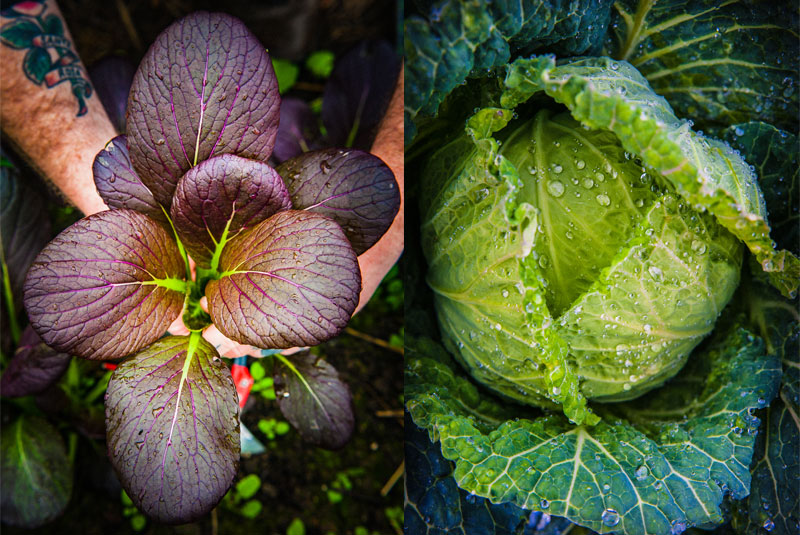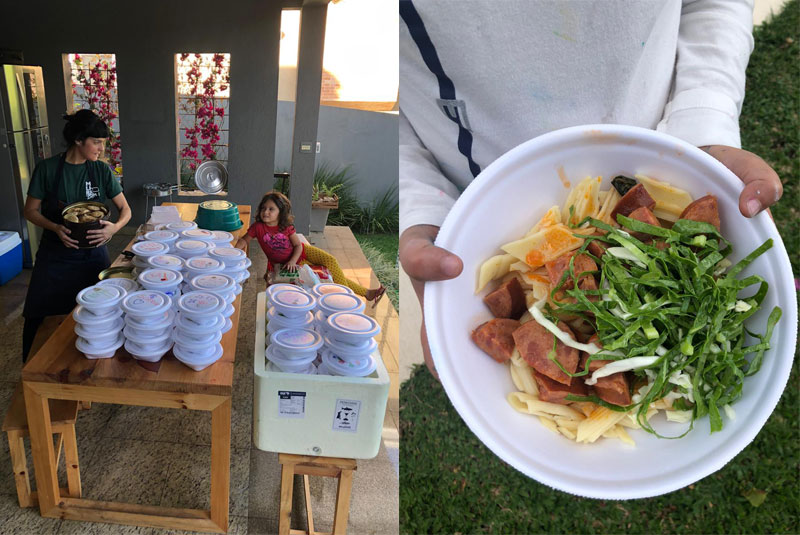Food Made Good Global, 50 Best’s Sustainability Audit Partner and the team behind the assessments for the Sustainable Restaurant and Sustainable Bar Awards, has been evaluating changes that the current crisis might prompt. Here, the organisation outlines how hospitality businesses should be looking to flex and adapt
Covid-19 has thrown the hospitality industry into chaos, bringing profitability and resilience into sharp focus. At Food Made Good Global, we believe businesses will weather the crisis. To do this, they need to work closely and transparently with customers, staff and suppliers to find solutions and reduce risks. While short-term priorities have drastically shifted, most recognise that knee-jerk reactions to today’s difficult climate won’t give us the more resilient food future that we need.
In this article, we explore some areas for business owners to consider during the reopening phase in order to reopen right. With a UK study finding that over half of consumers would feel uncomfortable visiting restaurants and bars post-lockdown, all establishments will need to adapt to get people back through the door. Even though some of these adaptations will require changes in operations, these need not be detrimental to the planet and could even reduce costs. Thinking sustainably now will give a head start on operating in a post-pandemic world and allow for a safe and sustainable reopening.
Here are some pointers to help restaurants and bars reopen right.
Safety
Above all else, to get people back into restaurants and bars, they will need to feel safe whilst they’re in the venues. There are already many health and safety requirements that restaurants are required to implement. New measures, such as more frequent hand washing, increased surface cleaning and clear protocols on what to do if a member of staff or customers feels unwell, will be needed. While new, these measures can become part of business as usual very quickly if implemented correctly and from the point of reopening. People are expecting a ‘new normal’, so will be more malleable to change if it’s explained properly when things start up again.
The team of restaurant Amber, Hong Kong, sporting their masks and sending a message of positivity
In terms of social distancing, employers need to think about staff, not just customers. Spreading out kitchen or barback prep shifts may be required, as well as adapting menus to reduce the number of staff needed at any one time. Time needs to be scheduled in to re-train staff on hygiene, cleaning protocols and new tasks. Managers may need to re-deploy staff to different parts of the business: where fewer staff may be needed behind a bar or counter, new positions such as managing the door and taking customers' temperatures on the way in may be required. Regular check ins with staff are vital to make sure they are happy and confident in their roles and with any new tasks.
Menu development
Menus may need to be redesigned based on what can realistically be prepared, thinking about social distancing in the kitchen, health and supply factors. This may mean offering a condensed menu that the team is confident it can serve well. Health considerations in people’s diets will be more important than ever, so menus need to adapt accordingly. This could mean serving smaller portions, including more positive nutrients on menus, or reducing the volume of meat. Such small changes can have positive financial and environmental implications.
For the time being, multi-use menus may need to be replaced with disposable paper or card. Likewise, other reusable resources may no longer be appropriate. Owners should seek out responsibly sourced materials, such as FSC certified paper, made from recycled resources or that are easily recyclable.
Sourcing and supply chain
This is a great time for chefs to focus on local and seasonal ingredients and to share their passion for provenance. While we won’t – nor would we want to – see an end to the globalisation of our food system, the coronavirus crisis has highlighted the strength and importance of local and regional supply chains. Having good relationships with producers and suppliers has allowed businesses to pivot quickly to selling much-needed produce or helping the community in other ways. There’s no reason this should stop once things start up again, particularly if the business has begun to develop a loyal customer base that appreciates the product; instead it’s an opportunity to develop these lines further.
Vegetables from restaurant SingleThread's farm in California
Businesses could begin by looking at their largest suppliers: starting a conversation to explain that they’d like to know more about the products they’re buying, where they come from and how they are grown or reared. These talks will offer new items and spark ideas for more sustainable practices.
Now more than ever, local suppliers need support and this situation provides a great opportunity to forge new relationships with more sustainable producers with similarly aligned values. Even sourcing one new local item will benefit the local food chain and show support for a farmer or producer.
Energy
Improving energy efficiency, using less water and generating less waste (including food waste) all directly benefit the bottom line. A recent study by our UK branch, the Sustainable Restaurant Association, found that restaurants in the UK open for delivery during the lockdown wasted an average of £148 (about $180) of food per week. The financial benefits of reducing waste should not be under-estimated.
One can’t monitor what isn’t measured, so step one needs to be setting up energy and waste monitoring. This data can often be obtained from providers, offering monthly figures to review. From this, managers can identify any obvious areas for improvement, such as unnecessary equipment left on overnight, over-ordering of food and degradable items, running dishwashers that aren’t full, or leaking taps. A series of small changes can lead to significant cost savings. Now is also a good time to call energy, water, gas, internet and phone providers to check the most appropriate tariff for your business.
Customer acquisition and marketing
Travel and tourism are going to take a long time to recover, so it’s more important than ever that restaurants and bars cater to their local community, not just tourists. Loyal regulars keep many businesses alive. Websites must be kept up to date to let customers know when the restaurant/bar is open and what new principles have been introduced to keep customers safe. Beyond acting responsibly, businesses will need to be vocal about their efforts so that customers are aware and feel confident to visit. Further tips for restaurants’ social media and marketing during the crisis and reopening phase can be found here and here.
Community involvement
Chefs, bartenders, bar owners and restaurateurs have already demonstrated an amazing drive to give back to their communities – a number of inspiring initiatives have been implemented from the start of this crisis. For those not sure where to begin, they can get in touch with other local businesses who have found ways to give back. Those in hospitality can join forces, be active on relevant forums and groups and learn from each other. Guests will appreciate any altruism, too.
Chef Manu Buffara in Brazil has been cooking meals for the homeless from her house
Resilience, adaptability and preparedness are all qualities that will be needed in the face of future climate disasters, let alone pandemics. Climate-related issues aren’t going anywhere, so we all need to plan and prepare, use available resources, stay informed and retain our core values. Not only will these actions help with immediate operations, but also help sustain businesses in the longer term.
Hospitality owners must continue to act as leaders and understand the power they have to influence behaviour and make change happen. There’s a huge opportunity to bring a massive audience along on your journey towards becoming a more sustainable restaurant or bar.
We can all use this time to think about the future of our food system, short and long term, and focus on a new ‘business as usual’, which puts sustainability at its heart. Let’s be aware that any number of unpredictable hurdles may lie ahead, so be prepared to adapt and react as you go. People on both sides of the counter are feeling their way into the new normal, so not everything will go smoothly.
For more resources and information on re-opening right, visit Food Made Good. To understand and begin tracking your sustainability, whilst also planning for re-opening, try our free self-assessment tool, tracking 50 issues that matter.
Visit the Restaurant Recovery Hub and the Bar Recovery Hub to explore useful resources and read the stories of chefs and bartenders around the world. Follow 50 Best on Instagram, Facebook, Twitter and YouTube to discover positive initiatives by the worldwide hospitality industry.

